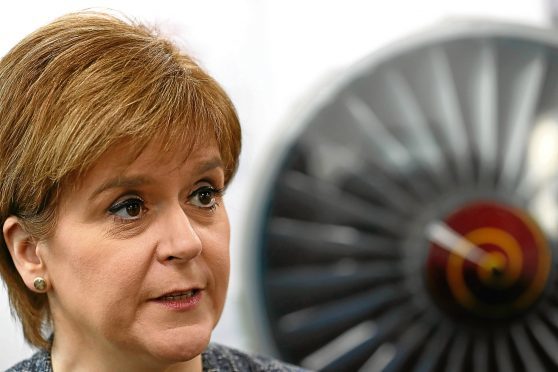Nicola Sturgeon has admitted that Scotland’s new government-owned investment bank will have to pay bumper salaries.
But the First Minister said the bid to attract talented bankers will not be driven by the “bonus culture” that has roused public anger in the past.
The SNP leader, who announced plans for a Scottish National Investment Bank last year, welcomed the recommendations from an independent body of economic advisors on Wednesday on how the bank should be run.
It would provide finance for businesses under a national strategy outlined by ministers to boost the economy.
Speaking in Edinburgh, Nicola Sturgeon said ministers would be “getting ahead of ourselves” they were to start “putting numbers on salaries” of its future executives.
“If this bank is to be successful we will want to attract the top talent to run it and we will need to be able to attract that talent,” she said.
Referring to public outrage on “over-inflated” salaries and bonuses paid to bankers, Ms Sturgeon added: “We don’t want to obviously have those kind of concerns into a publicly-owned organisation that is there for the public good.
“These are issues we will require to look at and discuss closely in the next phase of planning here.”
The implementation plan, which was drafted by Tesco Bank chief executive Benny Higgins, says the bank requires at least £2bn of public money over the first decade.
Ministers say they have already taken the first steps towards this by setting aside £500m over the next three years.
Jackie Baillie, the Labour MSP, says the SNP is being “timid” and £20bn over 10 years is needed to “do the job required, to invest in business and grow our economy”.
Mr Higgins said the economy is “languid at best, in part due to the material risks associated with the unfolding of Brexit its consequences”.
“I think there is an incontrovertible case for the creation of this bank,” he said.
“It is not a novel idea, there are many around the world but it’s right for Scotland and it need to be right now.”
It is estimated that running costs of the bank, which should be fully operational in 2020, would be between £20m and £30m a year, with a workforce of up to 150.
